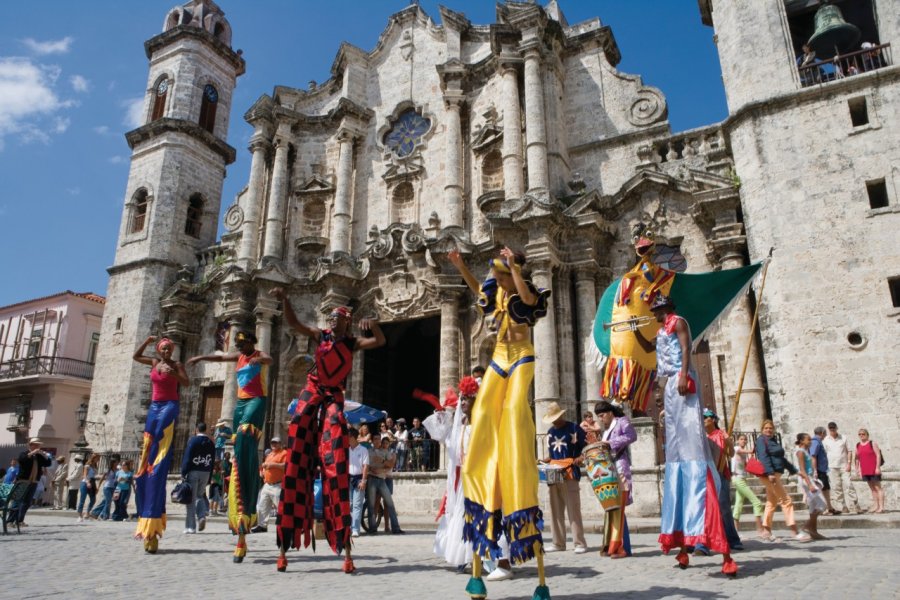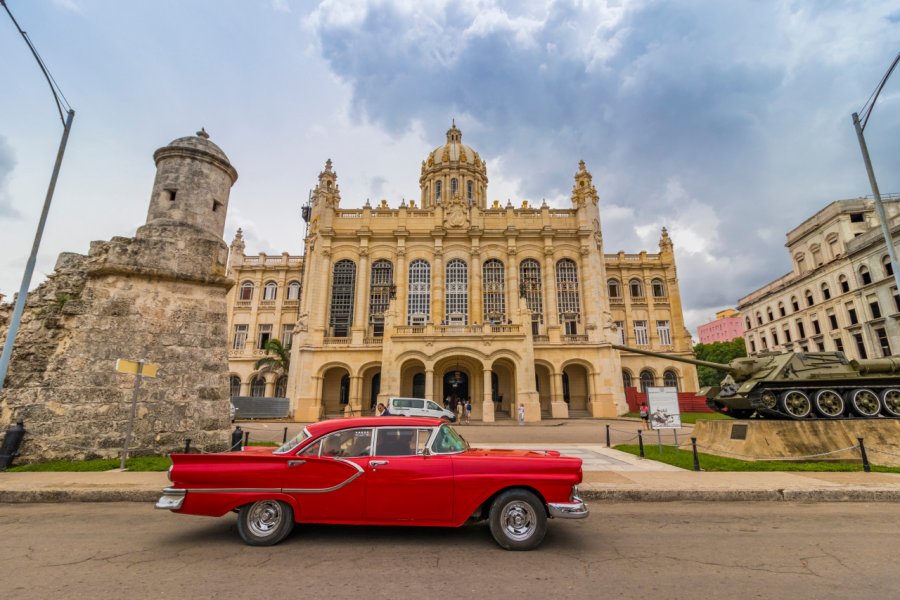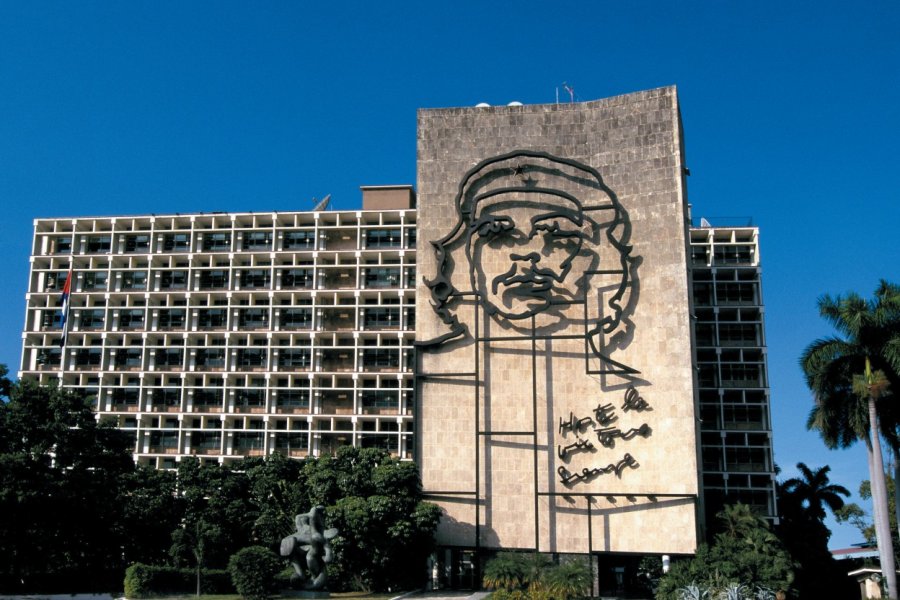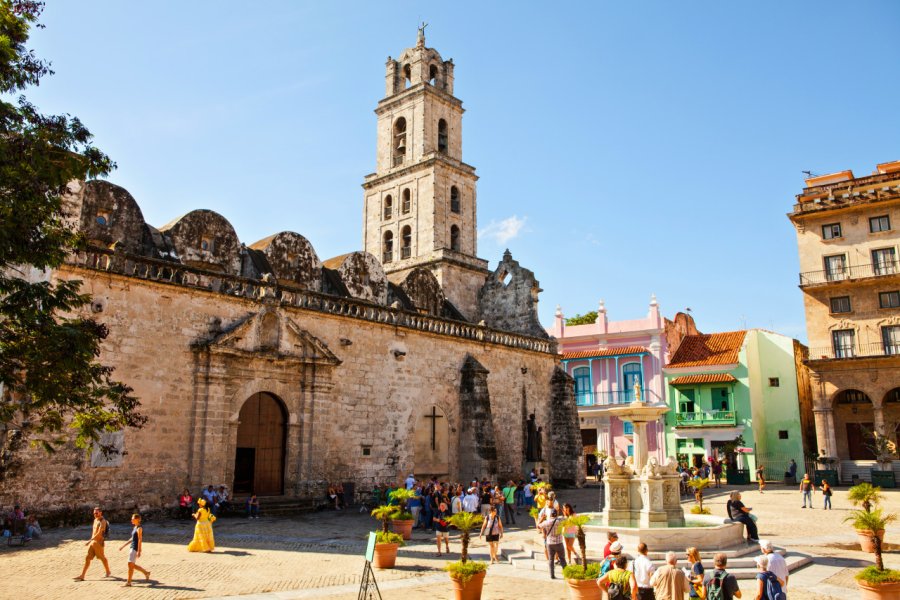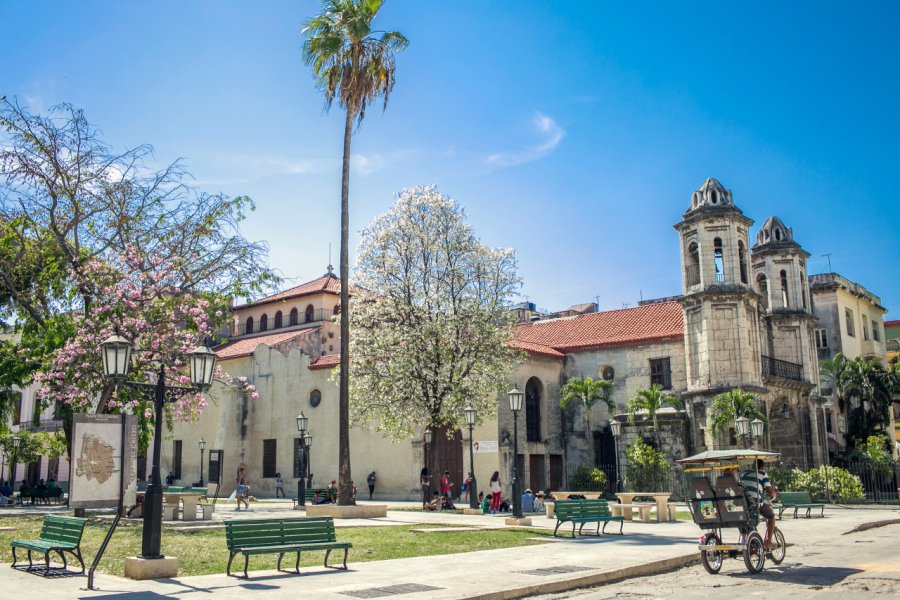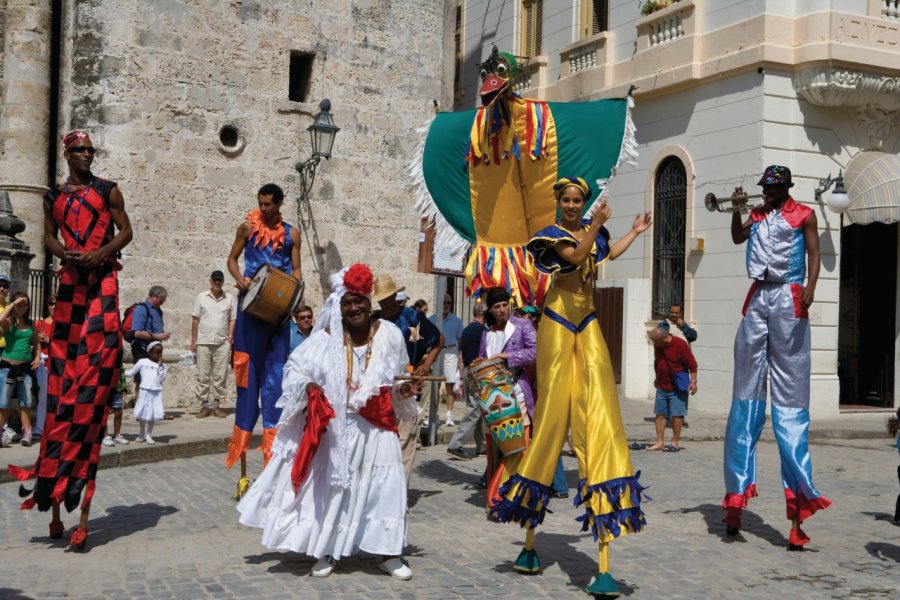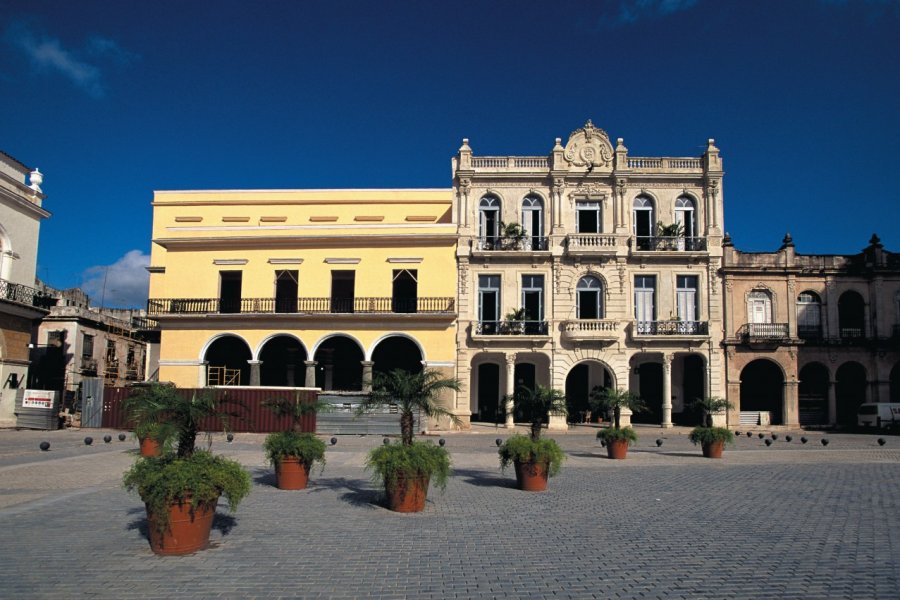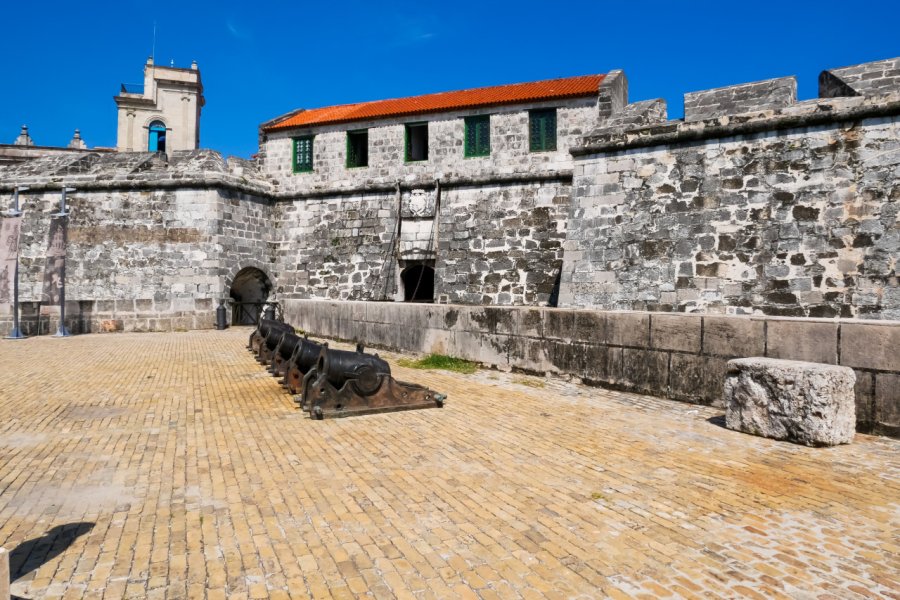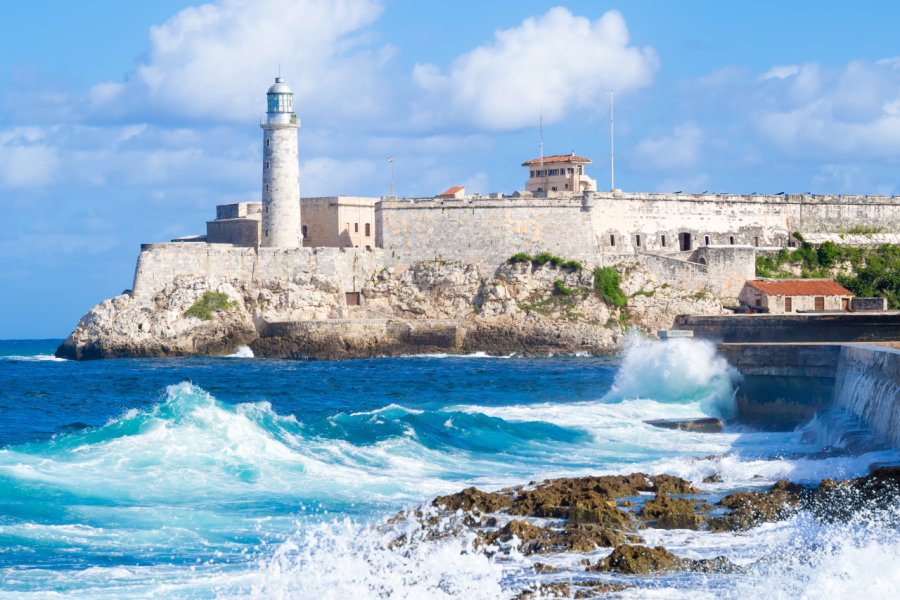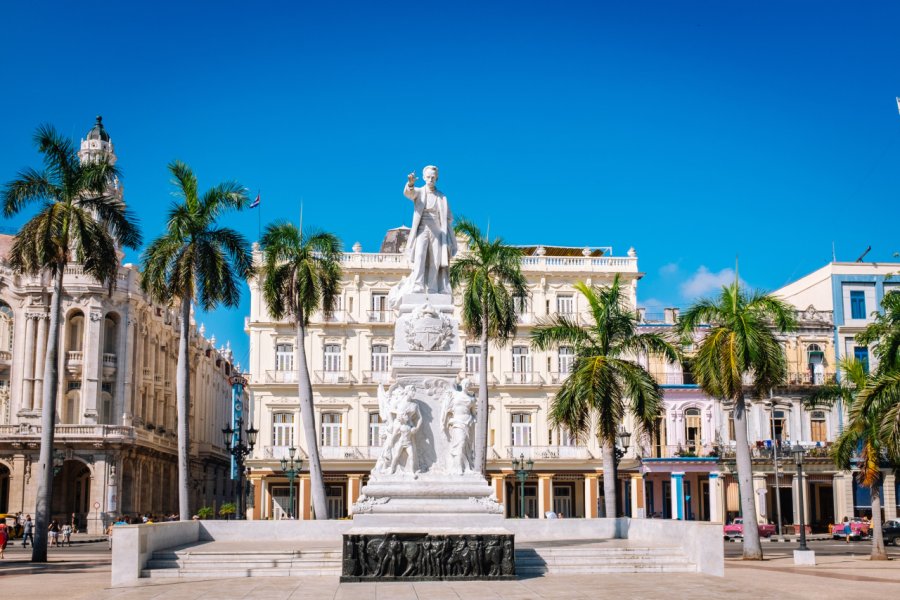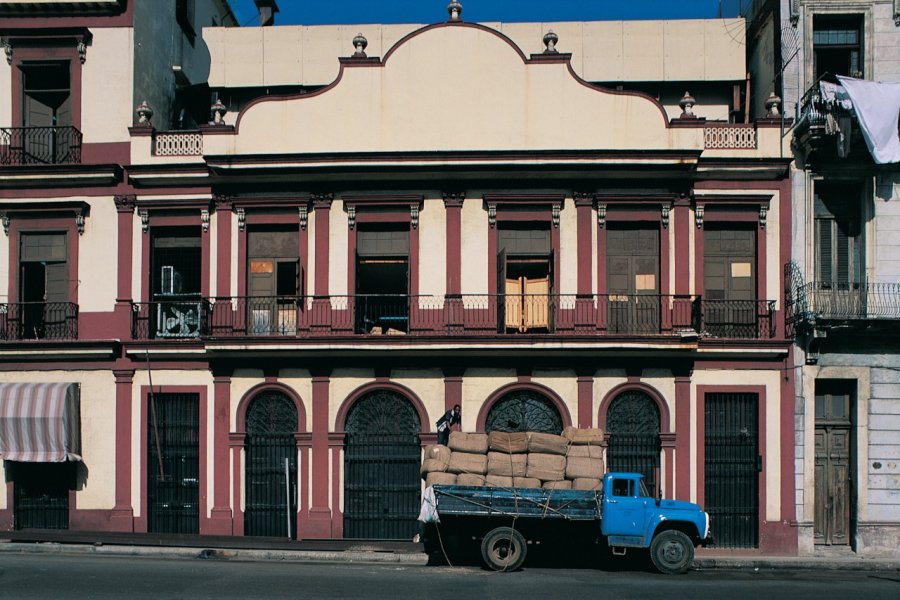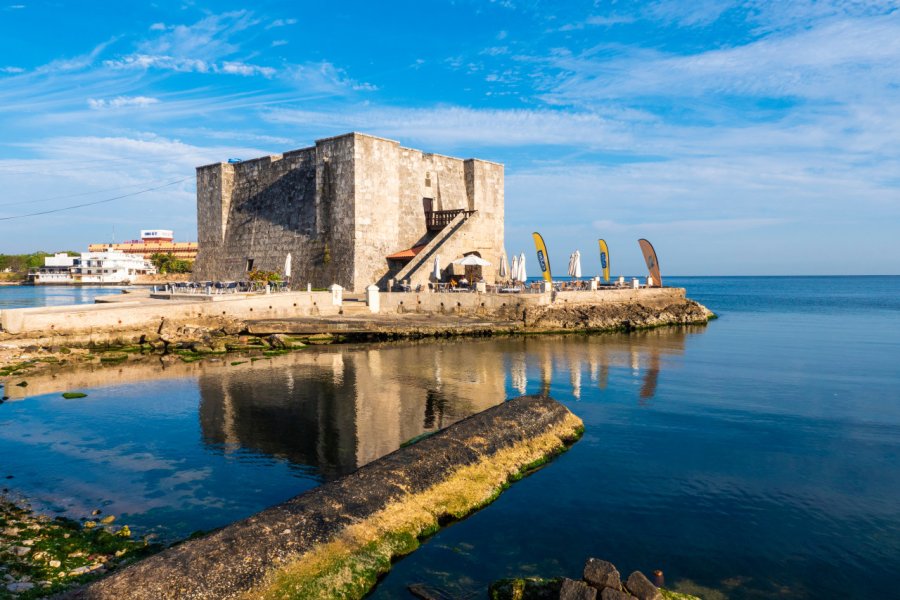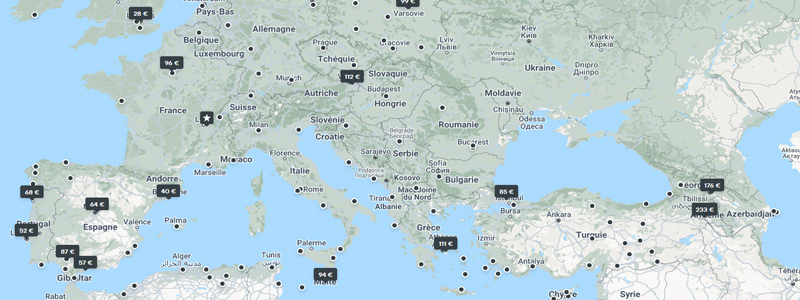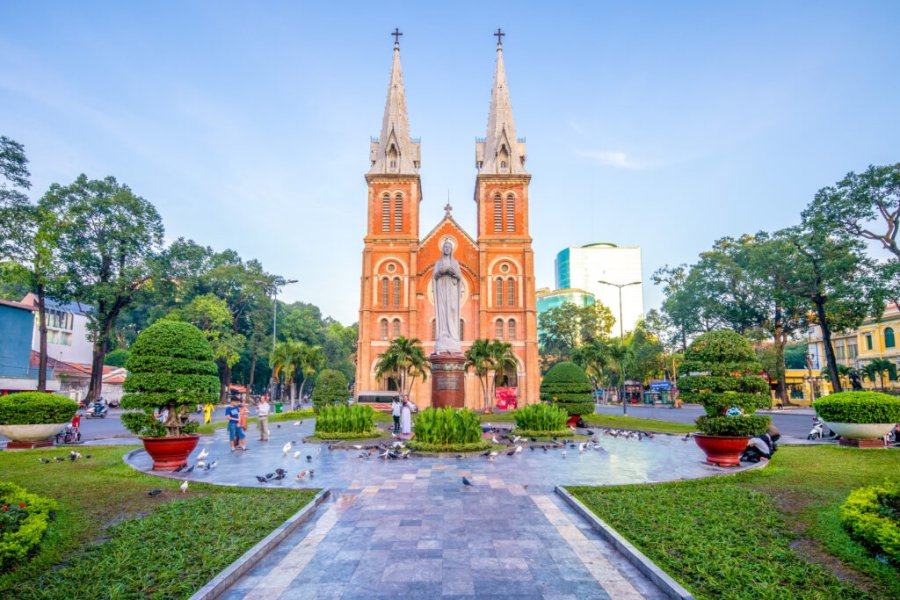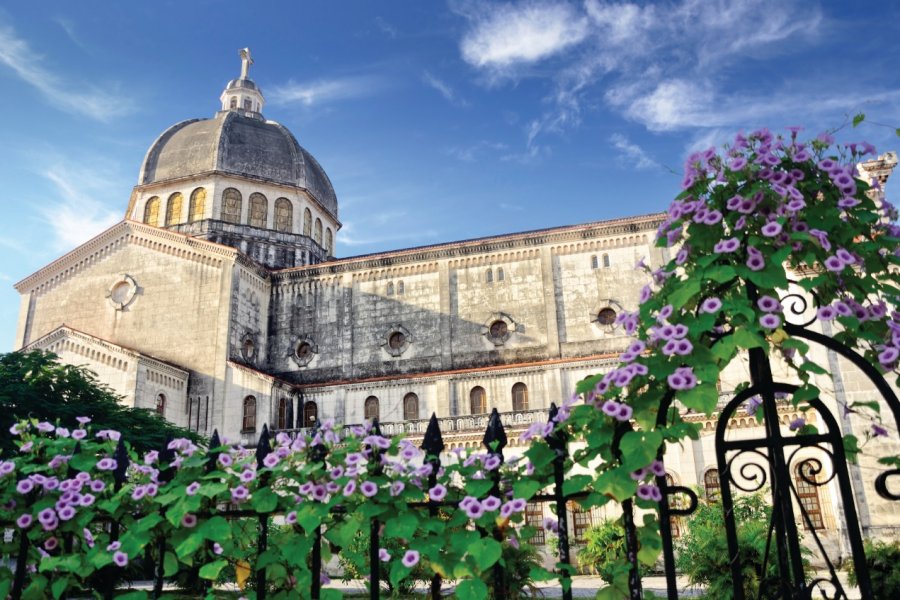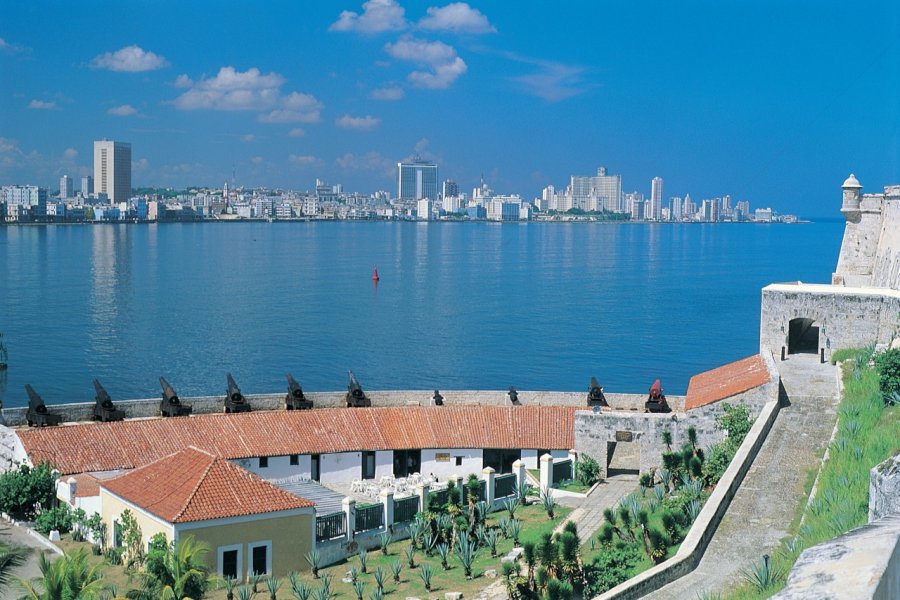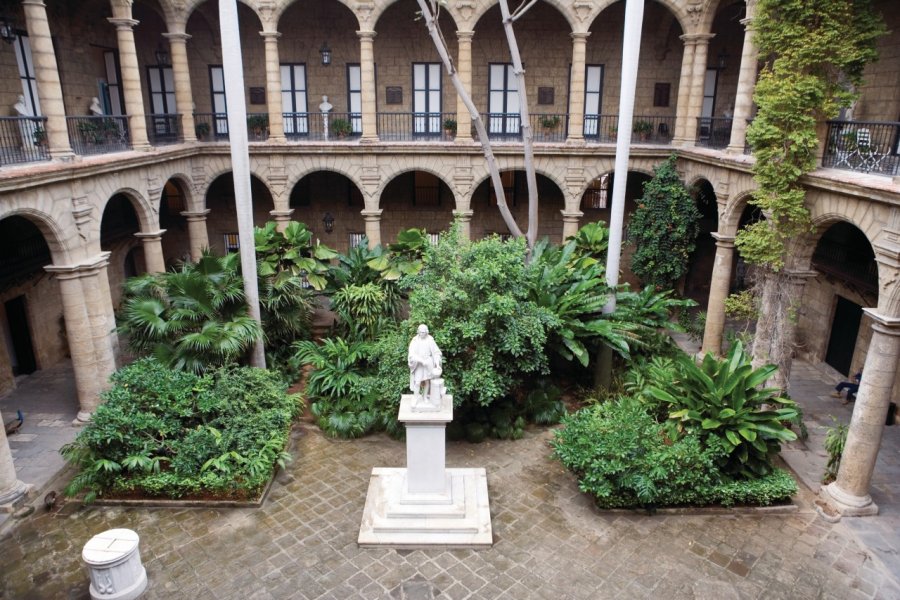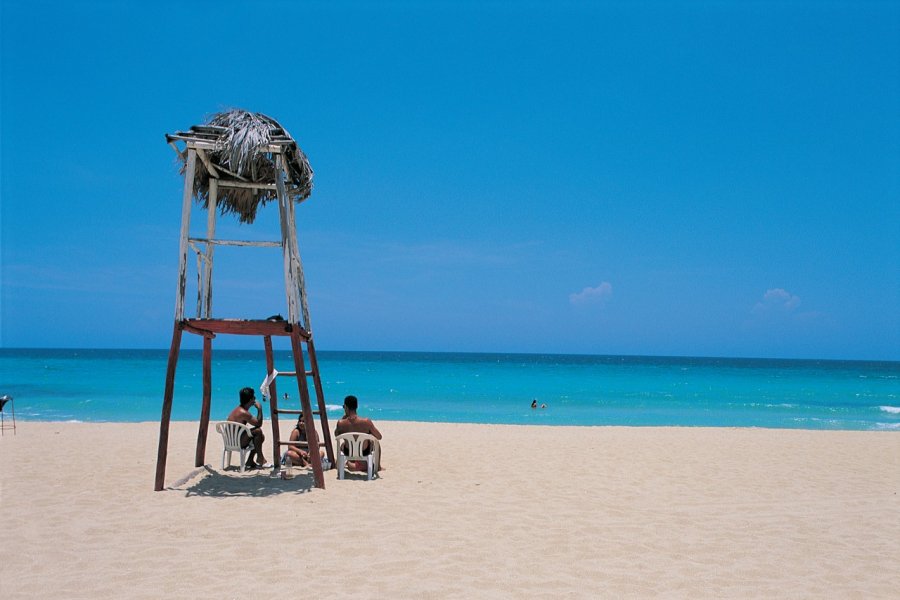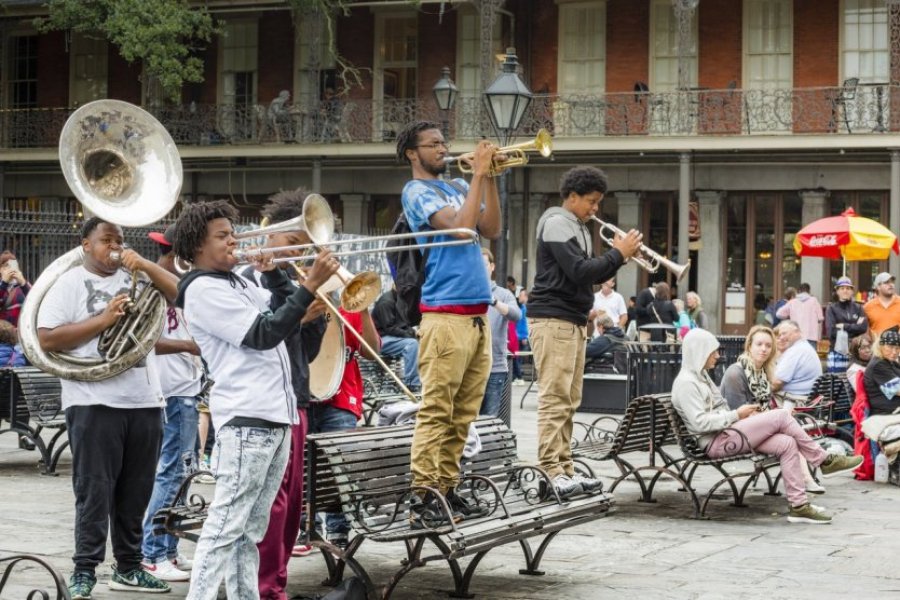Travel Guide La Havane
As they say in Havana: Cuba es La Habana, y lo demás es paisaje (Cuba is Havana, the rest is landscape)! It must be said that the inhabitants of the Cuban capital are proud of their city, and there is reason to be proud of it. Anyone travelling to Cuba, the largest island in the Caribbean, for the first time, does not return unscathed from their stay in Havana, generous, jovial and offbeat. To begin with, its architectural heritage is exceptional: the picturesque Habana Vieja district is the largest colonial complex in Latin America, listed as a UNESCO World Heritage Site. Between its modernist palaces and baroque churches, improbable American cars from the middle of the last century transport tourists and Cubans to the popular districts of Centro Habana or to Malecón, a seaside promenade lined with ancient hotels with decayed facades. There will also be good encounters in the more modern areas of the Vedado and Miramar, with orthogonal routes and where the festival is in full swing as soon as night falls: cuba libre, cigars and salsa cubana are on the menu. But beyond these celebrations, what we remember from a stay in the Cuban capital are the Havanese themselves, who have a contagious joie de vivre. Havana's tourist guide offers you some orientation elements in the alleys and alleys of one of the most beautiful cities in the world.
What to visit La Havane?
Suggested addresses La Havane
When to go to La Havane?
When to go to Havana? In July and August, temperatures are hot and humid. Moreover, it is the summer vacations for Cubans and for many tourists. Big crowds therefore on the paradisiacal beaches as well as in Santiago de Cuba and in the capital where the carnival takes place. If you decide to discover the city at this time of the year, you should know that you will not be alone to enjoy the summer effervescence! The best time to go to Havana is from March to June: although hot, the city's temperatures are more pleasant than in summer. In general, avoid the month of October, when the risk of hurricanes is highest. The island is indeed regularly hit by storms at this time. When to go to Havana? The months of December and January, the beginning of the dry season, are also pleasant periods, along with spring.
Weather at the moment
Because of the tropical climate, there are two seasons in Cuba: the dry season, which extends from December to May - Havana's temperatures rise during this period but remain pleasant - and the rainy season, which runs from June to November. During the latter, Havana's weather is characterized by short but intense daily rainfalls, which usually occur in the late afternoon. October is considered the month of the hurricanes, which can be extremely devastating.
The country lives under a dual currency regime: the Cuban peso (CUP) is the national currency used by locals, and the Cuban convertible peso (CUC) is created for tourists. This is one of the reasons why Havana is not a cheap destination. With an organized tour, you will only have to cover your personal expenses (drinks and souvenirs). On the other hand, the individual traveler will have to put his hand in the wallet regularly. Do not forget the tips.
To travel to Havana, two documents will be required: a valid passport and a tourist card (which is valid for an entry visa to Havana and Cuba in general). The latter is issued by the Cuban consular authorities in Paris but can also be obtained directly from Havana airport. Plan 22 €. Approved French tour operators are also allowed to sell it for a few more euros. You will need to present your passport and plane ticket. A certificate must also certify your reservation for the first two nights in a hotel or a particular casa. The tourist card is valid for only one month with the possibility of a 30-day extension on site, subject to authorisation by the Cuban immigration services and after payment of 25 CUC (convertible pesos ).
No particular vaccine is required to travel to Havana, except for the update of the classic vaccines (diphtheria, tetanus, poliomyelitis). If you come from a country in Africa or Latin America where yellow fever is present, you may be asked to provide an international medical certificate proving that you have received the yellow fever vaccine within the last ten years. The hepatitis A vaccine is recommended. There is no longer any malaria in Cuba, which does not exempt visitors to Havana from protecting themselves from mosquito bites by wearing long-sleeved clothing and applying repellents to exposed skin. As far as drinking water is concerned, it is strongly advised to drink bottled water rather than directly from the tap, at the risk of exposing oneself to some digestive complications.
Practical information
- When to travel?
- Weather forecast
- Budget
- Formalities
- Health
- How to travel by yourself?
- How to get organized?
- Getting around
Media
How to go to La Havane? Our advice & tips
Havana is an eminently touristic city, so the tour operators offering tours there are legion. Generally, the trips to Cuba are designed for groups (small or large) and include flights, accommodation, meals and access to the main tourist sites. Thematic tours are also planned according to the year's calendar: salsa courses, Havana marathon, history and heritage, gastronomy, etc.
Discover our selection of travel agencies for this destinationFrom Europe, a flight to Havana is not cheap, but if you plan well in advance, you can find return tickets for 600 €. For the rest, as for most trips, anticipation will help avoid unnecessary expenses, mainly concerning the reservation of accommodation. Cubans are very welcoming and it is very easy to meet people in Havana.
To get around Havana, the most important means of transportation is the car. Except in the city center, where you can get around very well on foot, you will have recourse to the services of cabs to get from one neighborhood to another: official cab, private cab or clandestine cab. Bicycle cabs are also common in the capital, as well as coco-taxis, motorized tricycles with a yellow hull that looks like a coconut.


